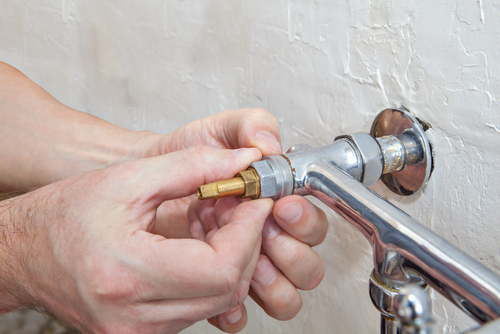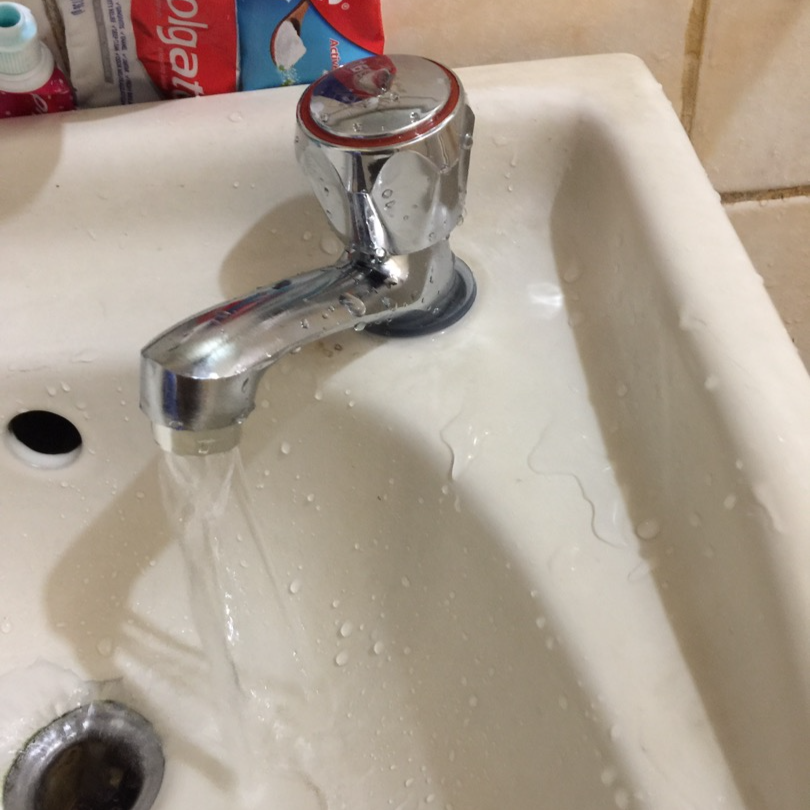An Importance of Correcting a Faulty Faucet
An Importance of Correcting a Faulty Faucet
Blog Article
Everybody maintains their own unique thoughts when it comes to What Causes Leaky Faucets & How To Fix Them.

Dripping taps might look like a minor aggravation, however their impact surpasses just the annoyance of the audio. From drainage to incurring unneeded economic prices and wellness threats, ignoring a leaking tap can result in different consequences. In this write-up, we'll explore why it's important to resolve this typical house issue promptly and successfully.
Waste of Water
Environmental Influence
Trickling faucets add dramatically to water waste. According to the Environmental Protection Agency (EPA), a single tap trickling at one drip per second can waste greater than 3,000 gallons of water annually. This not only pressures water sources but additionally impacts ecosystems and wildlife dependent on them.
Step-by-Step Overview to Fixing a Dripping Tap
Tools Called for
Before trying to repair a trickling faucet, collect the essential tools, consisting of an adjustable wrench, screwdrivers, substitute parts (such as washing machines or cartridges), and plumber's tape.
Common Tap Issues and Their Solutions
Recognize the kind of faucet and the certain issue creating the drip. Common troubles include damaged washing machines, corroded shutoff seats, or defective O-rings. Describe manufacturer directions or online tutorials for step-by-step advice on repair work.
Financial Prices
Increased Water Expenses
Past the environmental effect, trickling faucets can pump up water costs substantially. The collected wastefulness in time equates right into higher utility costs, which can have been avoided with timely repair services.
Potential Building Damages
Furthermore, extended leaking can bring about damage to fixtures and surfaces surrounding the faucet. Water buildup can create staining, corrosion, and even structural issues if left ignored, leading to added fixing prices.
Wellness Concerns
Mold and Mildew Growth
The continuous existence of wetness from a leaking faucet creates an optimal atmosphere for mold and mildew and mold growth. These fungi not only compromise indoor air quality but also position wellness risks, particularly for individuals with respiratory conditions or allergies.
Waterborne Conditions
Stagnant water in dripping faucets can become a breeding place for microorganisms and various other microorganisms, enhancing the danger of waterborne diseases. Contaminants such as Legionella microorganisms grow in stationary water, possibly resulting in major illnesses when ingested or inhaled.
DIY vs. Professional Fixing
Pros and Cons of Do It Yourself Repair Service
While some may try to repair a dripping tap themselves, DIY repairs feature their very own set of obstacles. Without appropriate knowledge and devices, DIY attempts can aggravate the problem or lead to insufficient repair work, prolonging the issue.
Benefits of Working With a Professional Plumber
Working with a professional plumber makes certain that the underlying root cause of the dripping tap is dealt with properly. Plumbing technicians possess the experience and devices to detect and repair tap issues effectively, conserving time and reducing the threat of further damages.
Ecological Obligation
Specific Contribution to Conservation
Taking duty for repairing trickling taps lines up with wider initiatives toward water preservation and ecological sustainability. Every individual's actions jointly make a substantial impact on protecting priceless resources.
Sustainable Living Practices
By prioritizing punctual fixings and adopting water-saving routines, people add to sustainable living practices that profit both existing and future generations.
Safety nets
Normal Maintenance Tips
To prevent leaking taps, execute regular upkeep such as cleaning aerators, examining for leakages, and changing damaged components promptly. Additionally, think about setting up water-saving tools or updating to extra efficient fixtures.
Significance of Prompt Fixes
Attending to trickling taps as quickly as they're observed protects against more water wastefulness and possible damages, inevitably conserving both water and cash in the future.
Effect On Building Worth
Assumption of Well-Maintained Building
Keeping a property in good condition, including resolving upkeep problems like leaking faucets, enhances its perceived worth and charm among potential customers or lessees.
Impact on Resale Value
Characteristics with well-maintained plumbing components, consisting of faucets, command higher resale worths in the realty market. Dealing with dripping faucets can contribute to a favorable perception throughout building assessments and settlements.
Conclusion
Resolving a leaking faucet surpasses simple convenience; it's an essential action toward saving water, decreasing economic expenses, and safeguarding health and wellness and residential or commercial property. Whether via DIY repairs or expert assistance, doing something about it to repair trickling faucets is a little yet impactful way to promote liable stewardship of resources and add to a healthier, a lot more sustainable future.
How to Fix a Leaky Faucet: Step-by-Step Repair Guide
A leaky faucet may seem like a simple annoyance, but if it's not fixed promptly, that leak could cost hundreds to potentially thousands. From water damage to mold, mildew, and high water bills, even a tiny leak can be catastrophic if left unattended. Damage like this can even affect the overall value of your home, so it's important to take the right approach for leaky faucet repair. You may need the help of a plumber in some cases, but we've got a few tips you can try on how to fix a leaky faucet before calling the pros.
Four Faucet Types
When you're learning how to fix a leaky faucet, the first step is knowing what kind of faucet you're working with! There are four common types.
Cartridge Faucets
Cartridge faucets come in one- or two-handled varieties. In one-handled cartridge faucets, hot and cold water combines in a single cartridge. In the two-handled versions, hot and cold water are controlled separately and mixed in the faucet.
Ball Faucets
Ball faucets have a single lever you push up and down to adjust the pressure and rotate to change the temperature. A slotted metal ball controls the amount of water allowed into the spout.
Compression Washer Faucets
They're the oldest type of faucet, but they're still used in many homes — especially older ones. Compression faucets have two separate handles that, when turned, raise or lower the washer that seals a water valve. This valve stops water from flowing through the faucet when it is turned off.
Disc Faucets
Disc faucets rarely need to be repaired due to their maintenance-free design. The water flow is controlled by two discs — the upper one raises and lowers against a fixed lower disc, creating a watertight seal. If your disc faucet starts leaking, you may need to replace the seals or clean residue buildup from the inlets.
Fixing a Leaky Faucet
Step 1: Turn Off the Water
Whether you're learning how to fix a leaky bathtub faucet or how to fix a leaky kitchen faucet, always turn off the water supply to your working area when you're fixing a leak. The last thing you want is a flood added to your list of things to fix.
Look for the shutoff valves below your sink or around the tub and turn them clockwise to stop the water flow. If your faucet doesn't have shutoff valves, you may need to turn off the water for the whole house. Check to make sure it's off by turning the faucet on. If nothing comes out, you're ready to start the repair.
Step 2: Take Apart the Faucet
How you disassemble your faucet depends on the type of fixture you have. You can use a flathead screwdriver to remove the caps on top of the handle or handles for cartridge and compression faucets. Inside, you should see handle screws. Unscrew these with a screwdriver to remove the handle.
Disc- and ball-style faucets will typically have an inlet screw near the handle, and removing that will reveal the interior of the faucet.
Detach the Valve Stem
For cartridge- and compression-style faucets, you'll see the inner valve stem or cartridge once you remove the faucet handles. If you have a compression faucet, unscrew the brass valve stem. If you have a cartridge faucet, pull out the cartridge. If your cartridge has been in place for a while, it may require some tools or extra force to remove it due to mineral deposits.
Examine and Replace Parts
Once you've removed the parts, check them out to confirm what needs to be replaced. You may see corroded rubber washers, O-rings, stems, or cartridges. On a ball-style faucet, check the seats and springs for damage.
If you need to repair a leaky disc faucet, check the inlet and seals on the lower disc.
Once you determine what parts must be replaced, visit your local hardware store. Bring the damaged parts with you to ensure you can purchase the correct components to replace them.
Clean Valves and Faucet Cavity
If you've removed a stem or cartridge, you may notice mineral buildup in the faucet's threads. Use white vinegar to clean the valve seat by soaking it for a few minutes, then scrub it away with a soft toothbrush and rinse with warm water. You can also clean the interior of the faucet in the same way.
Reassemble the Faucet
Once your faucet is cleaned and the required parts have been replaced, it's time to reassemble it. Put the pieces back together and slowly turn the water supply back on. Doing this slowly is crucial because too much initial water pressure can damage the new hardware you've just installed.
https://homewarranty.firstam.com/blog/how-to-fix-leaky-faucet

Do you really like reading up on Why It's Important to Fix Leaky Faucets? Create a comment down below. We'd be delighted to listen to your insights about this review. We hope that you come back again in the near future. So long as you appreciated our blog entry kindly be sure to pass it around. I praise you for your time. Return soon.
Report this page